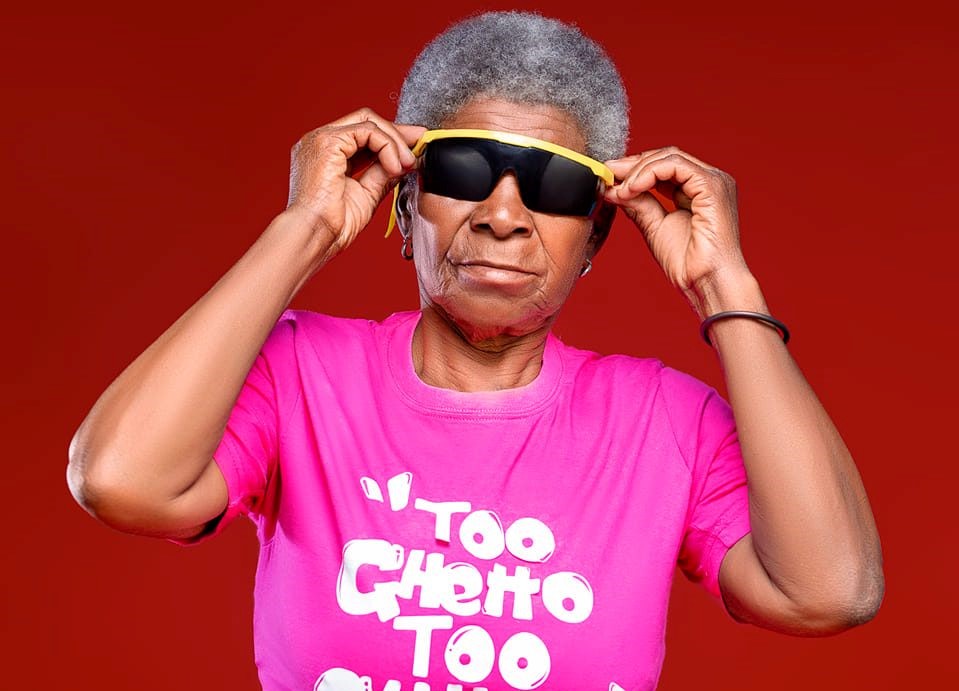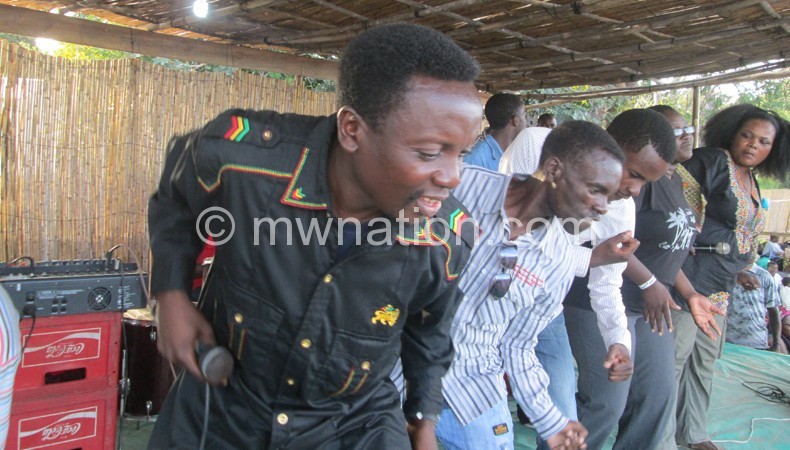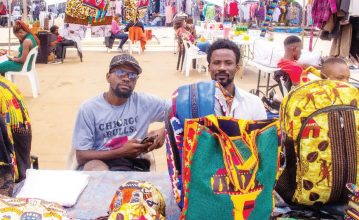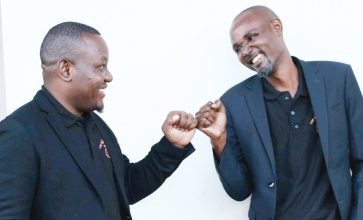Moya Aliya Malamusi Ethnomusicologist
 The story of ethnomusicologist and cultural anthropologist Moya Malamusi cannot be told without giving due reference to his cousins Daniel and Donald Kachamba who moulded his music career into what it is today as CHEU MITA discovered.
The story of ethnomusicologist and cultural anthropologist Moya Malamusi cannot be told without giving due reference to his cousins Daniel and Donald Kachamba who moulded his music career into what it is today as CHEU MITA discovered.
A video recorded by German researcher Gerhard Kubik of the Kachamba Brothers Band at Singano Village in Chileka, Blantyre, in 1967 was the entry point into our conversation.
In the video, the young Malamusi is seen tagging along with the older members of his family Daniel and Donald and other boys from the village going around, making music.
“I started playing music with my brothers at the age of eight. I was paying maseche,” he muses as we watch the 10-minute video of the band.
We were lucky to have caught up with Malamusi a professor at the University of Vienna and is currently home on a research holiday.
Born in 1958, in Singano Village, Malamusi has done extensive research into guitar styles and techniques in Southern Africa, among many other research projects he has undertaken in the Central and Southern regions of Malawi.
He talks of his upbringing in Singano Village as the reason behind his affection for music.
“There was always something musical that came out of Singano Village. We even had women who played music,” says Malamusi.
He said in the days of the Kachamba Brothers Band, they usually had someone playing the flute, guitar, maseche and one string bass (babaton). Usually, this music was played at night parties in the villages and people would stay up all night dancing and drinking.
The Kachamba Brothers are famous for bringing Kwela music to Malawi.
“They used to take me to fill in when they were missing someone to play some instrument. I was only eight then and it was a bit difficult to stay awake at these overnight parties. Then my brother Daniel was clever, he would ensure I stood next to him so that each time I dozed off, he would step on my foot and I would wake up,” he said.
He said that as a young boy, he had respect for his brothers (children from his aunt) and there was nothing he could do but play music with him.
During all that time, Malamusi was going to school and getting educated and only played music during his pastime. It was when he was in Standard Six that it seemed all hope for education was lost as he was unable to get fees for his education.
It was at this time that Donald Kachamba travelled to Austria with Gerhard Kubik and when they came to Malawi in 1975, they rescued Malamusi from doing nothing and decided to take him to Austria.
“When I got to Austria, I continued with my education, but before I did anything, I had to learn German first as this wasn’t an English speaking country. I finished my matrix in the 90’s and went on to the University of Vienna.
“It was by sheer luck that some woman there decided to sponsor my education as I was struggling to find money for college tuition. She took me to her bank and sponsored my education, it was like a dream and that was from 1994 to ’99,” he said.
Malamusi said after his master’s programme, he registered for a PhD programme to work with Professor Kubik and everything just fell in place. Throughout university, he studied cultural anthropology with music as his mainstay due to his background in the field.
“Things just worked out for me. After my PhD, the university of Vienna employed me. It was all God’s work. I just praise God for giving me the talent. I work as a college professor and a researcher,” he explained.
Married for over 30 years, Malamusi has five children and is lucky to have a wife and daughter who have shown interest in his research work. At the time of the interview, his wife Maria had travelled to Austria to work on her own research findings on traditional stories she has recorded from different women in communities around Malawi.
It is no doubt that Malamusi’s contribution to research in oral literature is an asset to the country although he has had no government assistance. He is still playing music to date.
Malamusi’s Oral Literature Research Programme was founded in 1989 by Malamusi and his sister, the late Lidiya Malamusi.
The centre which also holds a Museum of Ethnographic Objects usually hosts visiting researchers and a group of students from Vienna is expected in the country in July. The Jacaranda House serving as a Museum of Ethnographic Objects is open to schools and students.
In his spare time Malamusi still plays music, using different instruments.





